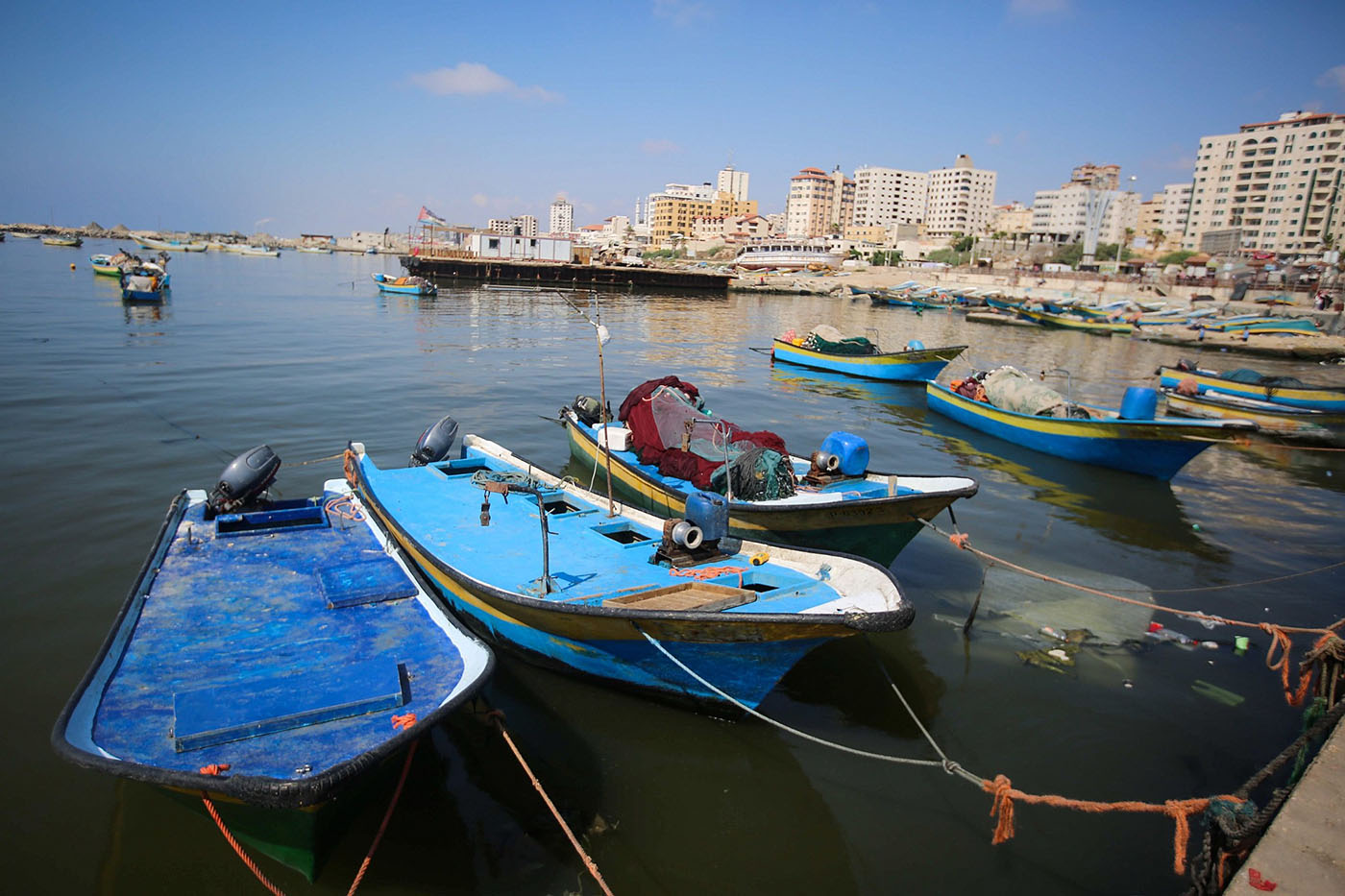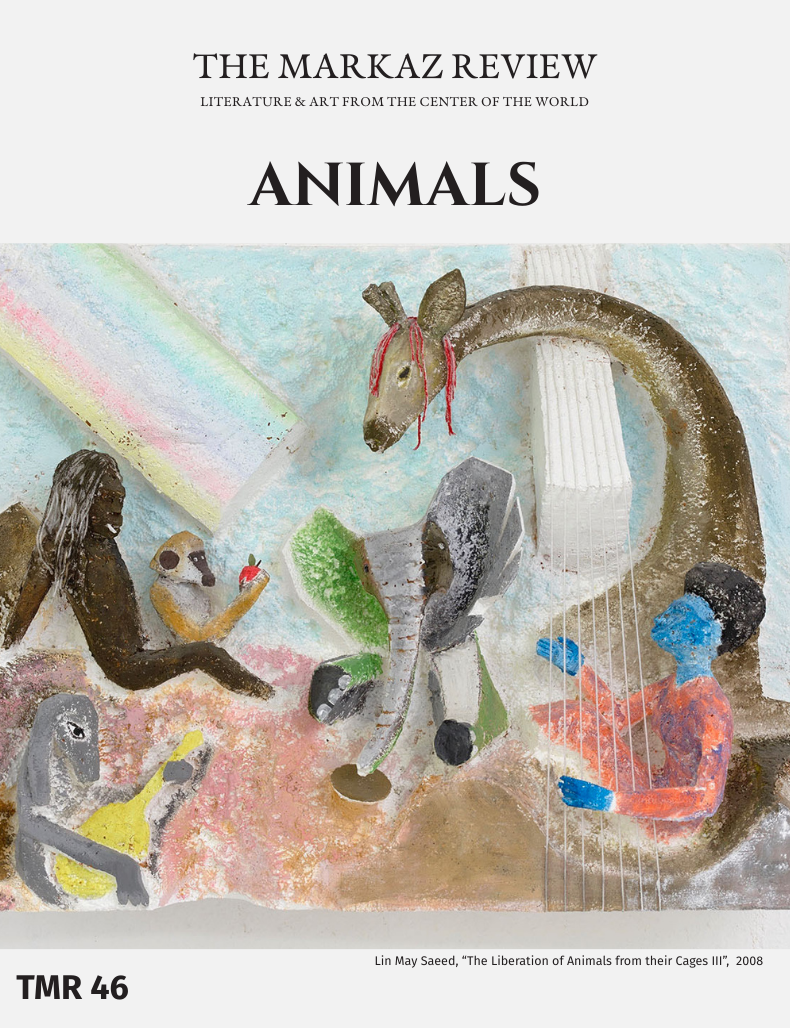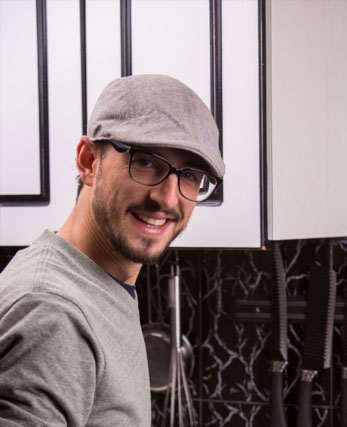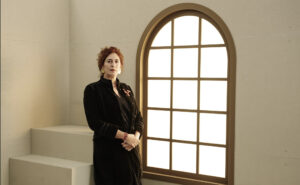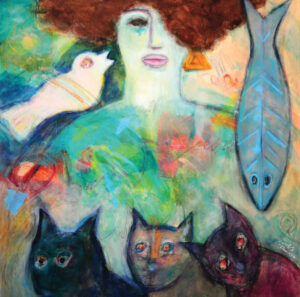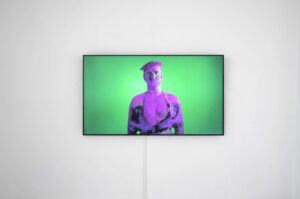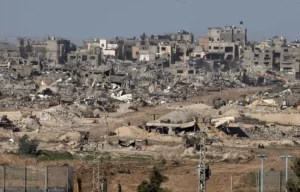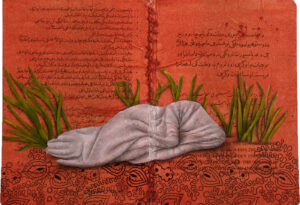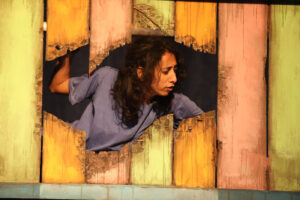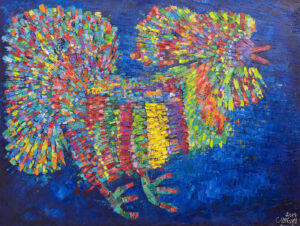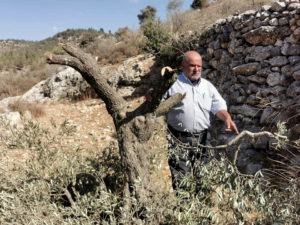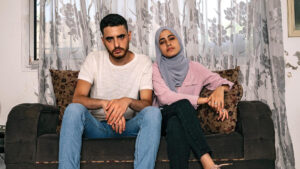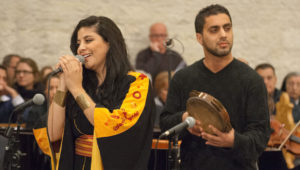Can Izzeldin Bukhari bring the cat his sister loves to her wedding in Gaza? Only the IDF and Hamas stand in his way — an exclusive excerpt from the new anthology Daybreak in Gaza: Stories of Palestinian Lives and Culture, edited by Mahmoud Muna and Matthew Teller with Juliette Touma and Jayyab Abusafia, published by Saqi Books.
In 1948 my maternal grandparents Mohammed and Zahida Ali Hassan fled as refugees from Ramleh to Gaza, where they set up their new home and where my mum and all her siblings were born. Every year when I was young, my mum would take us to Gaza for our summer holidays. I remember we would get into a Mercedes taxi — the long ones with three doors on each side — outside our house in the middle of the Old City of Jerusalem, on Via Dolorosa, and it would take us directly to the doorstep of my grandmother’s house in Gaza. You can’t do that anymore. I saw how Erez, the main entry checkpoint for Gaza, grew year by year up until 2000. That was the last time we were able to spend our summers in Gaza, because after that came the Second Intifada and the Israelis made travel impossible.
Since then the only time I’ve been to Gaza was when my sister Amina got married in 2008. Amina is so sweet and kind. She loves animals. We had a garden at home — my dad kept rabbits, pigeons, chicken, geese, ducks — and I remember Amina would adopt baby rabbits, even taking them to school with her. She knew how to communicate with them. It was like she had an extra heart for them.
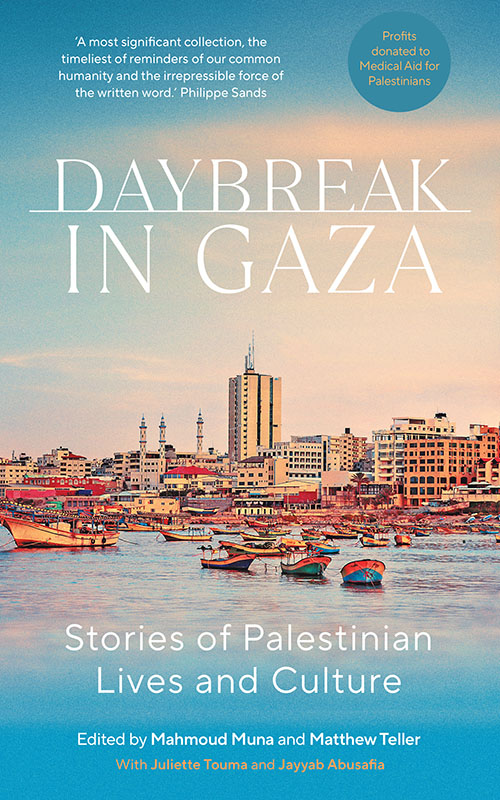
Every year we would hang out with a neighbor of our grandma’s in Gaza. He and Amina always got on well. After 2000 their relationship became virtual, because they couldn’t meet any more, but they fell in love and decided to get married. It was a big dilemma in the family, not because of who he is — he’s a great person — but we hesitated to send Amina to Gaza.
Everything was eventually agreed, and a few days before the wedding, we traveled together from Jerusalem — my father Abdul Aziz, my sisters Danya and Haya, and my mum Hala. We got to Erez and an Israeli soldier, about 18 years old, was very rude to my mother. I remember trying to stand up for her, which turned out to be a stupid mistake because the Israelis let all my family into Gaza except for me. They said my Israeli ID was fake and ordered me to go and bring my birth certificate to prove my identity. So everyone else went ahead to be with Amina, while I rushed back to Jerusalem, collected my birth certificate and came straight back to Erez the same day.
Then the Israelis told me that my birth certificate wasn’t enough and I needed to bring my laissez-passer — a type of travel document issued to Jerusalemite Palestinians. They were playing games, but what could I do?
Next day, I returned to Erez with my laissez-passer, but then they told me that the only way I was going to get into Gaza was to renew my ID. It’s not easy to go to the ministry and do all the paperwork to get a completely new Israeli ID card, but my sister’s wedding was the following day, so I had to try. I went home and scheduled an appointment at the ministry for the next morning at 7 a.m. I would pick up my new ID, go straight to Erez and hopefully still make it to the wedding.
I was making calls at home when our cat started to miaow at me. We had this beautiful white cat with blue eyes — or was it green eyes? I forget — called Julie, but everyone called her Lulu. Amina loved Lulu, and had had to leave her behind when she left to Gaza. I was thinking how much Amina was going to miss Lulu, and then I realized how great it would be to bring her to Gaza. Amina would love that. It would be such an incredible surprise for her. I was so excited about the idea. I was only 23, remember. By then it was already night and I had to be up early for my appointment, so I started looking around the house for anything I could use to carry Lulu to Gaza.
An empty birdcage! Perfect.
Next day, I get up, go to the ministry, collect my ID, hurry back home, then somehow — honestly, it wasn’t easy — get the cat into the birdcage. The cage has a plastic base with thin metal bars fixed to it, and I can see it isn’t very strong to hold Lulu, so I tape it up all the way round to try and hold it together, then I carry it down to the taxi.
At Erez, I get out and start walking towards the entrance holding this birdcage with Lulu inside — and it’s exactly then that I think maybe this isn’t a good idea. What am I doing? I’ve got Amina’s cat in a birdcage and I’m trying to get through the Israeli checkpoint? What was I thinking? But I’m already there, and the wedding will be starting soon, and there’s no time to go back home. I just hope the cat makes it.
I can see that the Israeli soldiers are watching me walk towards them, wondering what is this guy carrying. Alarm bells are ringing in my head, and I start thinking to myself, OK, don’t be suspicious, just be as cute as possible here. This is just one nice guy and his pretty cat, nothing to be worried about. And I start talking to the cat in this coochy-coo voice, “Hey, Lulululu, you’re so beautiful, everything’s great, look it’s so much fun, we’re going to Gaza!” The cat hates me.
I get to the soldiers, who are all armed, and I can see they’ve all got their finger on the trigger. They ask me what this is, and I just say, as lightly and as cutely as I can: “It’s a cat!”
“Why have you got a cat with you?”
“I want to take it to my sister.”
They don’t believe me. They talk among themselves, and one of them gets on the walkie-talkie, and then I have the whole department at Erez come over to see Lulu, and they are firing questions at me. Who are you? Where are you from? Why do you want to go to Gaza? Why are you taking a cat? Who is your sister? Where is she? Who is she marrying? How does she know someone in Gaza? Why is she getting married there? Why do you have a cat? Does the cat live with you at home? What is the cat’s name? Is it a pet? Why do you have pets?
Then the captain comes up to me, and says: “If you take this cat into Gaza, it stays there. You can’t get it back again.”
And I think, yeah, even the cat has the wrong ID for you, but I just say: “Great! Perfect! That’s my mission.”
He looks at me very seriously.
“Did you put anything in the cat?”
I am very serious back to him, and say no.
He says again: “Did you feed the cat anything you’re not supposed to?”
I say: “Even if I tried, do you think she would let me?”
“Is this cat dangerous in any way?”
I think all sorts of answers, but I say no.
They tell me to wait. Time passes, people come and go, I’m thinking about the wedding — and then I see that the Israelis have put Lulu on the belt of the baggage X-ray machine, still in her cage, and they’re sending her back and forth through the X-rays. Three times I see the cat go in, come out, then go back in again. By now she is really annoyed, and I’m worried she might break the cage, so the Israelis let me put a blanket over it to calm her down, but it doesn’t really work. Eventually they tell me to take the cat and move on.
At Erez, once you’re finished with Israeli control, you go to the Palestinian control, but it’s not close: the two buildings are a long way apart. So I get a taxi and I put Lulu’s cage in the boot of the car, and we start moving.
But Lulu’s had enough. She’s been in that cage at least three hours by this time and it’s July, the middle of summer, it’s so hot. As we’re driving, I can hear that she has got loose, and is hissing and freaking out.
We arrive, and the taxi driver asks me what I’m going to do now. He wants to get rid of me and go back to his normal customers. But the only way is to very slowly open the boot and immediately try to smother the cat with the blanket and get her back into the cage before she can escape — and that needs both of us.
It was, well, let me say difficult. Lulu made a lot of noise, and there was some scratching and biting involved, but between us we got her into the cage. Lulu is howling and screaming from inside the cage under the blanket, and the Hamas men at the checkpoint for entry to Gaza are firing all sorts of questions at me, and I have to go through the whole thing again. What is this? It’s a cat. Why have you got a cat? I’m taking it to my sister. This one guy looks at me with total contempt, shaking his head.
“You’ve come all the way from Jerusalem, and you want to see your sister, and you’ve brought her a cat?”
I lose it, just a little bit. “Look,” I say, “My sister loves this cat and I’m bringing it to her for her wedding, and the cat is really pissed, and I just went through all this shit on the Israeli side, and my sister is getting married exactly this minute with all my family there, so please just let me go so I can get to the wedding and give this cat to my sister. Yes, I have a cat. Yes, I’m taking it to my sister. No, there’s nothing dangerous about the cat. Just let me pass.”
It seems to work. They accept the story, take down all my details — but then, last thing before they let me go, the Hamas guy says to me: “God willing, one day soon we will come and liberate Jerusalem” — the subtext being that I’m a soft, cat-loving city boy and Palestine needs real men to do the real work.
I get in the nearest taxi.
In the end I made it to my sister’s wedding. I arrived just as the bride and groom were walking together in the zaffeh procession into the grand reception. When my sister sees me, standing there in my jeans and stripy top because I haven’t had time to change, she’s so tearful and happy that I made it — and then she was just amazed when she saw the cat. Amina has such a sweet face when she’s talking to animals.
“Oh, Lulu! Lulu! What a beautiful cat you are! You’re in Gaza now! You’ll be a Gaza cat!”
But there was also a little bit of something else. She told me I was crazy for bringing the cat with me through the checkpoints. She was very worried about the cat suffering on the journey.
And then a few weeks later, the cat disappeared. We don’t know why. Maybe she was traumatized and left home. Maybe someone took her. She was very beautiful, this pearly-white cat.
I just wanted to bring Amina something nice from Jerusalem for her wedding because I knew that once she was living in Gaza it would be very difficult for her to leave. It seemed like a great idea. She really loved that cat.



